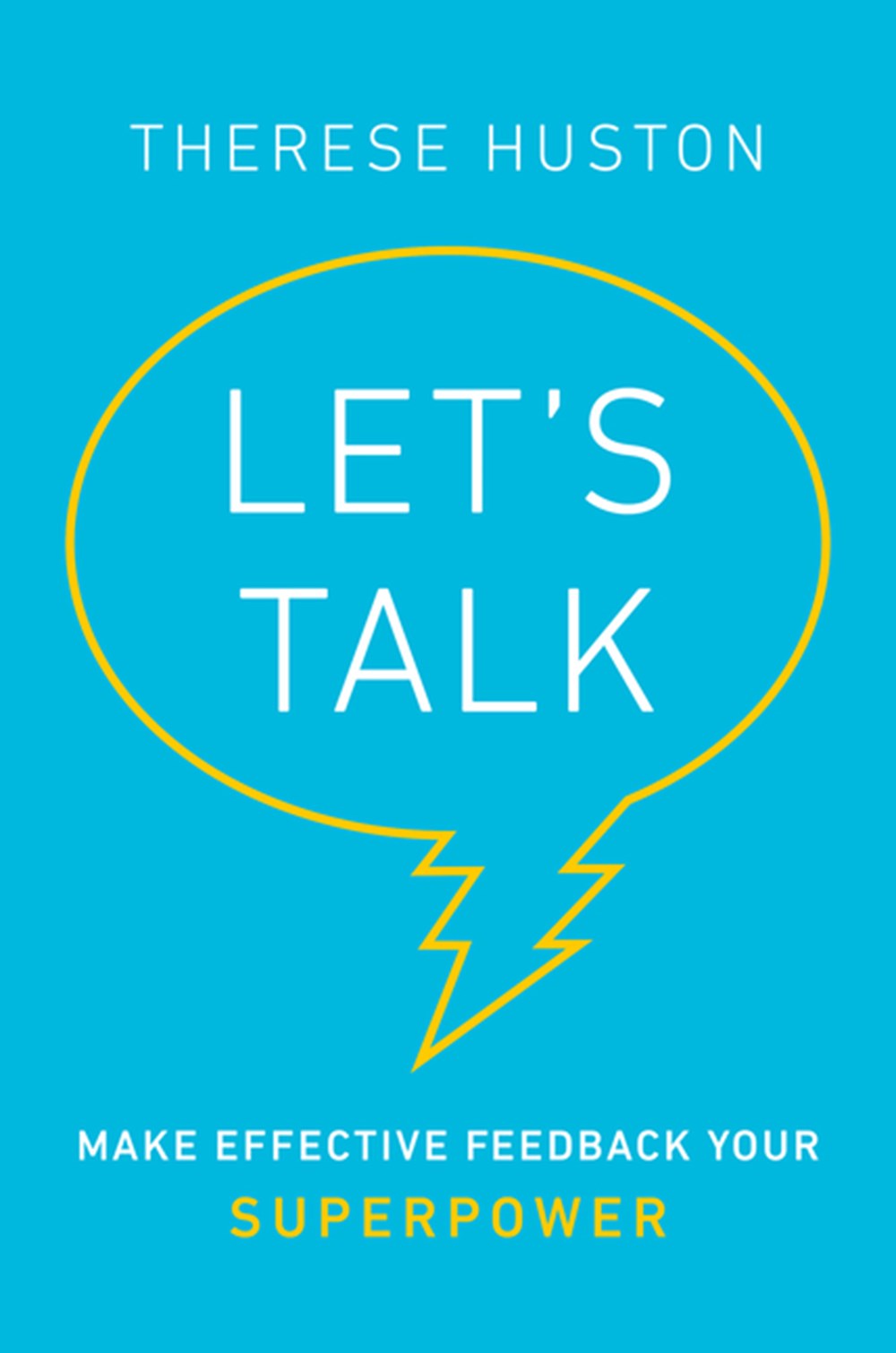
Let's Talk: Make Effective Feedback Your Superpower
"Recent studies have revealed 44% of managers dread giving feedback, and 65% of employees wish their managers gave more feedback. But fear of hurt feelings leads managers to bite back valuable insights. Or they rehearse feedback conversations obsessively in advance--only to find the interchange still doesn't go as planned.
| Quantity | Price | Discount |
|---|---|---|
| List Price | $27.00 | |
| 1 - 24 | $22.95 | 15% |
| 25 - 99 | $16.74 | 38% |
| 100 - 249 | $16.20 | 40% |
| 250 - 499 | $15.66 | 42% |
| 500 + | $15.39 | 43% |
Non-returnable discount pricing
$27.00
Book Information
| Publisher: | Portfolio |
|---|---|
| Publish Date: | 01/26/2021 |
| Pages: | 304 |
| ISBN-13: | 9780593086629 |
| ISBN-10: | 0593086627 |
| Language: | English |
What We're Saying
Most of us think of feedback as a one-way communication. If I have feedback to give, then I tell, you listen. … It’s gloriously simple and it’s often ineffective. READ FULL DESCRIPTION
Full Description
A game-changing model for giving effective feedback to peers, employees, or even your boss--without offending or demotivating. How are you supposed to tell someone that they're not meeting expectations without crushing their spirit? Regular feedback, when delivered skillfully, can turn average performers into the hardest workers and stars into superstars. Yet many see it as an awkward chore: Recent studies have revealed 37% of managers dread giving feedback, and 65% of employees wish their managers gave more feedback. This trail-blazing new model eliminates the guesswork. Dr. Therese Huston, the founding director of the Center for Excellence in Teaching and Learning at Seattle University, discovered that the key to being listened to is to listen. First, find out what kind of feedback an employee wants most: appreciation, coaching, or evaluation. If they crave one, they'll be more receptive once their need has been satisfied. Then Huston lays out counterintuitive strategies for delivering each type of feedback successfully, including: Start by saying your good intentions out loud: it may feel unnecessary, but it makes all the difference. Side with the person, not the problem: a bad habit or behavior is probably less entrenched than you think. Give reports a chance to correct inaccurate feedback: they want an opportunity to talk more than they want you to be a good talker.
This handbook will make a once-stressful ordeal feel natural, and, by greasing the wheels of regular feedback conversations, help managers improve performance, trust, and mutual understanding.
This handbook will make a once-stressful ordeal feel natural, and, by greasing the wheels of regular feedback conversations, help managers improve performance, trust, and mutual understanding.


